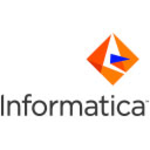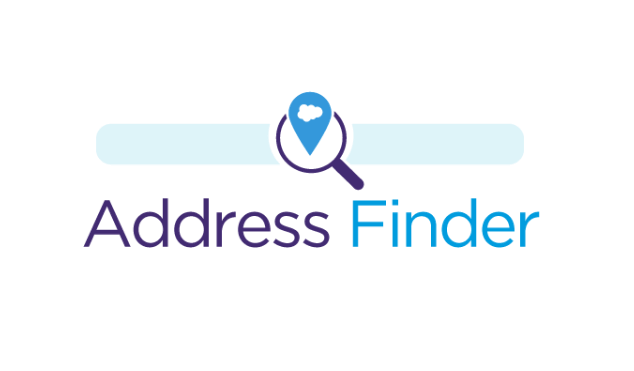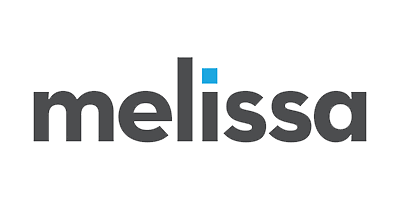What is Address Verification Software?
A technological tool called address verification software assists companies in validating and confirming mailing addresses for their clients or consumers. This program makes use of databases and algorithms to guarantee that the customer's address is accurate, comprehensive, and deliverable. This helps firms keep a clean and up-to-date database in addition to guaranteeing accurate and efficient mail and package delivery.
By addressing frequent issues, including inaccurate data entry, incomplete addresses, and invalid addresses, this software helps a variety of businesses, including e-commerce, insurance, banking, and healthcare. Having a proper address is essential for successful business operations, especially with the development of remote working and internet purchases.
In order for Address Verification Software to function, the input address is usually compared to a database of legitimate and standard postal addresses from the USPS or other postal agencies. Additionally, it verifies the address's validity, spelling, and format. Additional capabilities like autocorrecting typos, recommending missing address components, and real-time address validation are also provided by more sophisticated address verification systems.
This lowers delivery costs, increases customer happiness, and saves time and effort. Businesses can lower customer service questions, save money on returned mail, and enhance data quality by investing in address verification software. Through batch processing, web services, or APIs, it can be utilized as a stand-alone tool or incorporated into current systems.
It is crucial to evaluate qualities like accuracy, speed, simplicity of integration, and platform compatibility when evaluating address verification software. To guarantee a seamless deployment process, also check for reviews, ratings, customer service, and training choices.
What Are the Recent Trends in Address Verification Software?
The use of machine learning (ML) and artificial intelligence (AI) algorithms for more precise and effective address validation is one of the most recent developments in address verification software. These technologies lower the possibility of errors and increase the accuracy of address verification by analyzing and learning from vast datasets. Additionally, they adjust to shifting trends and variances in the address format, which increases the software's suitability for various locales and nations.
The integration of address verification software with other programs and systems, like marketing automation tools, e-commerce platforms, and customer relationship management (CRM) software, is another trend. This guarantees that the data is correct and current throughout the customer journey by enabling businesses to automatically validate customer addresses at several touchpoints.
Another increasingly important consideration for address verification software is mobile compatibility. The program must have a mobile-friendly interface and function flawlessly across various mobile platforms due to the growing trend of using mobile devices for online transactions. The move to cloud-based solutions is another advancement in address verification software.
Without the requirement for on-premise installation, cloud technology enables enterprises to use the software at any time and from any location. As the company expands, this also makes it simpler to scale and update the software. Address verification software also raises serious issues with data security and privacy. Address verification software suppliers are putting stringent data security procedures and compliance with laws like the GDPR into place to guarantee the protection of personal data as more companies handle sensitive client information.
Lastly, there is a growing trend in the creation of address verification software tailored to particular sectors, such as healthcare, financial services, and e-commerce. Software designed specifically for these businesses can offer more precise and customized solutions to satisfy their particular address verification requirements.
Benefits of Using Address Verification Software
For companies of all sizes to guarantee precise and effective client communication, address verification software is a crucial tool. By standardizing and validating addresses, this robust software helps businesses save time and money while increasing customer satisfaction.
We will go over the many advantages of employing address verification software in this buyer's guide, as well as how it may improve your company's operations.
1. Increased Precision of Data: The capacity of address verification software to authenticate and standardize addresses is one of its primary advantages. This guarantees that reliable data is gathered by lowering the possibility of human error in address entry. Businesses can prevent the expenses of inaccurate delivery or resource waste by getting rid of duplicate or wrong addresses.
2. Time-saving and Effective: Address verification software can do the task in a matter of seconds; however, manual verification can take a long time. This program swiftly compares addresses to a continuously updated database using sophisticated algorithms. Businesses can use the time and resources saved to accomplish more productive tasks.
3. Financial Savings: Inaccurate addresses may lead to expensive shipping and delivery mistakes. Software for address verification aids in removing these mistakes and cutting down on wasteful spending. Businesses can increase their profitability and prevent reshipping costs by making sure that addresses are correct.
4. Enhanced Customer Experience: Having accurate addresses helps to ensure that mail, packages, and other communications reach customers in a timely manner. This improves the overall customer experience and enhances satisfaction and loyalty. With address verification software, businesses can also ensure that their communications are personalized and targeted, boosting customer engagement.
5. Security and Compliance: In addition to ensuring that addresses are correct, address verification software assists companies in adhering to laws like GDPR and HIPAA. By confirming the validity of addresses, this software can help stop any fraud and illegal access.
6. Integration with Current Frameworks: Address verification software is a smooth addition to your company's operations because it integrates seamlessly with current software and systems. It guarantees that all client data is correct and current and may be integrated into websites, CRMs, e-commerce platforms, and other systems.
Important Factors to Consider While Purchasing Address Verification Software?
To make an informed and advantageous choice, there are a number of elements to take into account when buying address verification software. These elements include affordability, ease of use, integration potential, and data accuracy.
1. Data Accuracy: Ensuring correct and current address information is the primary goal of address verification software. As a result, selecting software with a high degree of data accuracy is essential. To guarantee the most accurate results, look for software that has sophisticated address validation algorithms and updates its database frequently.
2. User-Friendliness: Another crucial aspect to take into account is how simple the software is to use. Your staff may save time and effort by using an intuitive interface that enables them to swiftly verify and correct addresses without requiring a lot of training. To evaluate the user interface and see if it meets the needs of your team, take into account demo versions or free trials.
3. Integration Capabilities: To guarantee smooth operation of the address verification software, integration with your existing systems is essential. Seek out software that provides integration with well-known platforms, such as accounting software, e-commerce platforms, or CRM systems. By doing this, you can avoid wasting time and money on manual data transfers across systems.
4. Cost: The initial investment in address verification software can vary greatly, but it can result in significant cost savings over time. Finding a balance between the software's features and price is crucial. To find the most economical choice for your company, look for software with adjustable pricing options, such monthly or annual subscriptions.
5. Customer Support: If you have any technical questions or concerns, you can save a lot of time and aggravation by contacting customer service as soon as possible. Choose software that provides dependable and easily available customer service, such as phone, email, or live chat. All things considered, when buying address verification software, take into account the data's accuracy, ease of use, integration potential, price, and customer service to make an informed choice and select the ideal program for your company's requirements.
What Are the Key Features to Look for in Address Verification Software?
Businesses, especially those that handle a lot of consumer data and e-commerce transactions, need address verification software. This software is meant to assure accurate and up-to-date addresses for shipping, invoicing, and other client information. But figuring out which software is appropriate for your company might be overwhelming with so many possibilities. While looking through several address verification programs,
The following are the essential characteristics to consider to make an informed purchase decision:
1. Real-time address validation: Address verification software's primary goal is to guarantee addresses' accuracy in real-time. This implies that the program ought to be able to verify addresses as they are input, avoiding the saving of inaccurate or lacking data. This feature lowers the possibility of customer annoyance and delivery delays.
2. Address correction: Address verification software should be able to fix typos and errors in addresses in addition to validating them. Customers should find it easier to accurately complete their orders if the software can identify typical spelling errors and provide suggestions for the correct address.
3. System and platform compatibility: Address verification software should be simple to integrate with your current platforms and systems, including POS systems, CRM software, and e-commerce websites. This increases the effectiveness of your company's operations and guarantees a smooth address verification process.
4. Support for foreign addresses: Selecting software that can handle international addresses is crucial if your company operates internationally. This includes support for various address formats and language translations, as well as the capability to identify and validate addresses in other nations.
5. Address geocoding: This feature provides more precise and trustworthy data for delivery and other uses by pinpointing the precise location of an address using geographic coordinates. Additionally, it supports location-based marketing techniques and data analysis.
6. Data cleansing and deduplication: Software for address verification should be able to identify and eliminate erroneous or duplicate addresses from your database. This lowers the possibility of shipping errors, keeps customer data current and clean, and saves money on shipments that cannot be delivered.
7. Analytics and reporting: Seek out software that offers comprehensive analytics and reports on the addresses in your database, including the quantity of valid addresses, errors discovered, and the financial savings associated with precise addresses. You can use this information to generate data-driven decisions that will enhance your business operations.
Why Do Businesses Need Address Verification Software?
There are several reasons why businesses use address verification software. First and foremost, in the fast-paced corporate environment of today, accuracy is essential. In order to prevent expensive errors and delays, it is crucial to make sure that addresses are accurate and current given the volume of data being transported and stored. Second, companies can preserve a professional image by using address verification software.
Incorrect mailing addresses can result in refunds, undelivered goods, and eventually harm the company's reputation. Software for address verification might also increase client satisfaction. Businesses can prevent delivery problems and give their consumers a flawless experience by making sure the address they enter is correct.
Saving money is another advantage of address verification software. Businesses can save postage and shipping costs by preventing undelivered mail or goods. Additionally, it saves time and money by eliminating the need for human address checks and revisions. Software for address verification is also necessary for security and regulatory reasons.
Businesses are required by stringent data privacy rules and regulations to safeguard the personal information of their clients. Software for address verification can assist in confirming addresses and guaranteeing adherence to certain rules. Software for address verification can also offer insightful data and analytics. Businesses can improve their marketing and business strategies by better knowing the locations and demographics of their clients through the analysis of address data.
How Much Time Is Required to Implement Address Verification Software?
The supplier, the complexity of your system, and the degree of customization needed can all affect how long it takes to implement address verification software. The time needed for the program to be completely integrated and functional can range from a few days to a few weeks on average. Data mapping is the initial stage of implementation, during which the software supplier converts your current address information to their defined format.
This guarantees that addresses in your system can be correctly validated and verified by the software. The program must then be integrated with your current systems, like your eCommerce platform or CRM. If the software has pre-built integrations or APIs, this step can be completed quickly; if a bespoke integration is required, it might take longer. Following integration, the program must be set up to meet your unique company requirements.
This entails establishing address validation rules, choosing error-handling procedures, and personalizing the user interface. To make sure the software is operating properly, testing and troubleshooting must be done after the first setup is finished. Before utilizing the program in a real setting, this stage is essential to find any problems and make the required corrections.
In general, the process of putting address verification software into place is quite simple and quick. To guarantee a seamless and timely deployment, it is crucial to get in touch with your software provider as soon as possible and give them precise and comprehensive data. The deployment time may also be impacted by the training and assistance that the majority of providers provide to help your team comprehend and use the program efficiently.
What Is the Level of Customization Available in Address Verification Software?
For companies that depend on current and accurate address data, address verification software is an essential tool. The degree of customization this kind of software gives is one of the most important things to take into account before making a purchase. Businesses can increase the software's efficacy and efficiency by customizing it to meet their own demands.
Each service offers a different degree of customisation for address verification software. Nonetheless, the majority of trustworthy software vendors provide a significant degree of flexibility, enabling companies to modify the program to suit their particular requirements. This includes modifying address formats, adding or removing data fields, and establishing validation procedures.
Integrating the software with current systems and procedures is one of the biggest advantages of customization. This lowers the possibility of mistakes and duplicate data while also expediting the address verification procedure. Businesses can also alter the user interface to reflect their branding, giving both consumers and staff a smooth experience.
The ability to select the degree of precision required for address validation is a crucial component of address verification software customisation. A greater degree of accuracy in address verification might be necessary for some businesses, but not for others. Customization enables companies to modify the validation parameters to suit their unique needs.
Which Industries Can Benefit the Most from Address Verification Software?
Software for address verification is a strong instrument that has applications in many different sectors. The productivity and efficacy of numerous business procedures can be significantly increased by their capacity to swiftly and precisely confirm addresses against official databases. Knowing which industries stand to benefit the most from this software is crucial if you're thinking about investing in it.
The following are a few of the leading sectors that stand to gain the most from address verification software:
1. E-commerce: Address verification software can be extremely important in the fast-paced world of online shopping to guarantee correct and timely order delivery. Businesses can save delivery costs, avoid returns, and improve the general customer experience by removing the possibility of inaccurate or missing addresses.
2. Banking & Finance: Address verification software can assist the banking industry avoid fraud and adhere to laws like Know Your Customer (KYC) and Anti-Money Laundering (AML). Financial organizations can lower the risk of identity theft and increase the accuracy of credit reports by cross-referencing customer addresses with official databases.
3. Retail: Address verification software can be used to update and confirm consumer information in the retail sector, increasing the effectiveness and targeting of marketing campaigns. Increased sales and client loyalty may follow from this.
4. Government: Government departments and agencies frequently handle vast volumes of data and must guarantee the correctness of addresses for a number of reasons, including tax collection, voter registration, and license and permit issuance. Time and money can be saved by automating and streamlining these procedures with the use of address verification software.
5. Healthcare: Accurate patient data is essential in the healthcare sector. In order to ensure that bills and medical records are sent to the correct address, address verification software can help validate patient addresses. Additionally, it can assist healthcare professionals in preventing medical identity theft and adhering to HIPAA requirements.
6. Transportation and logistics: To deliver goods and services, the transportation and logistics sector mostly depends on precise address data. By ensuring that products are delivered to the correct location, address verification software can lower shipping costs and increase customer satisfaction.
7. Real Estate: Brokers, agents, and property management firms must keep up-to-date address data. Address verification software can assist clients have a better overall buying or renting experience, minimize errors and delays in closings, and confirm stated addresses.
Conclusion
To sum up, if a company wants to preserve correct client data and streamline operations, using the best address verification software is essential. Before making a purchase, it's critical to carefully assess your budget and unique needs. First, figure out how accurate and thorough the verification has to be for your company.
While some software merely checks addresses, others provide other functions, including email and phone validation. To make sure you select software that can fulfill your needs, consider the kind and amount of data you will be managing. Second, think about compatibility and integration possibilities with your existing systems. Over time, a smooth integration will save resources and time.
Seek out software that provides plugins and APIs for well-known platforms such as Shopify and Salesforce. Third, consider the degree of support and customer service the software provider offers.
This will guarantee that your data is safe and backed up, and that any technical problems or inquiries are resolved quickly. Fourth, evaluate pricing strategies and weigh the advantages and disadvantages for your company. Selecting the least expensive choice could jeopardize accuracy and dependability. Rather, choose software that is reasonably priced for the features and support it gives.
Last but not least, reading evaluations and hearing from other companies that have utilized the program might offer insightful information about its dependability and performance. This will assist in making a well-informed choice.






















